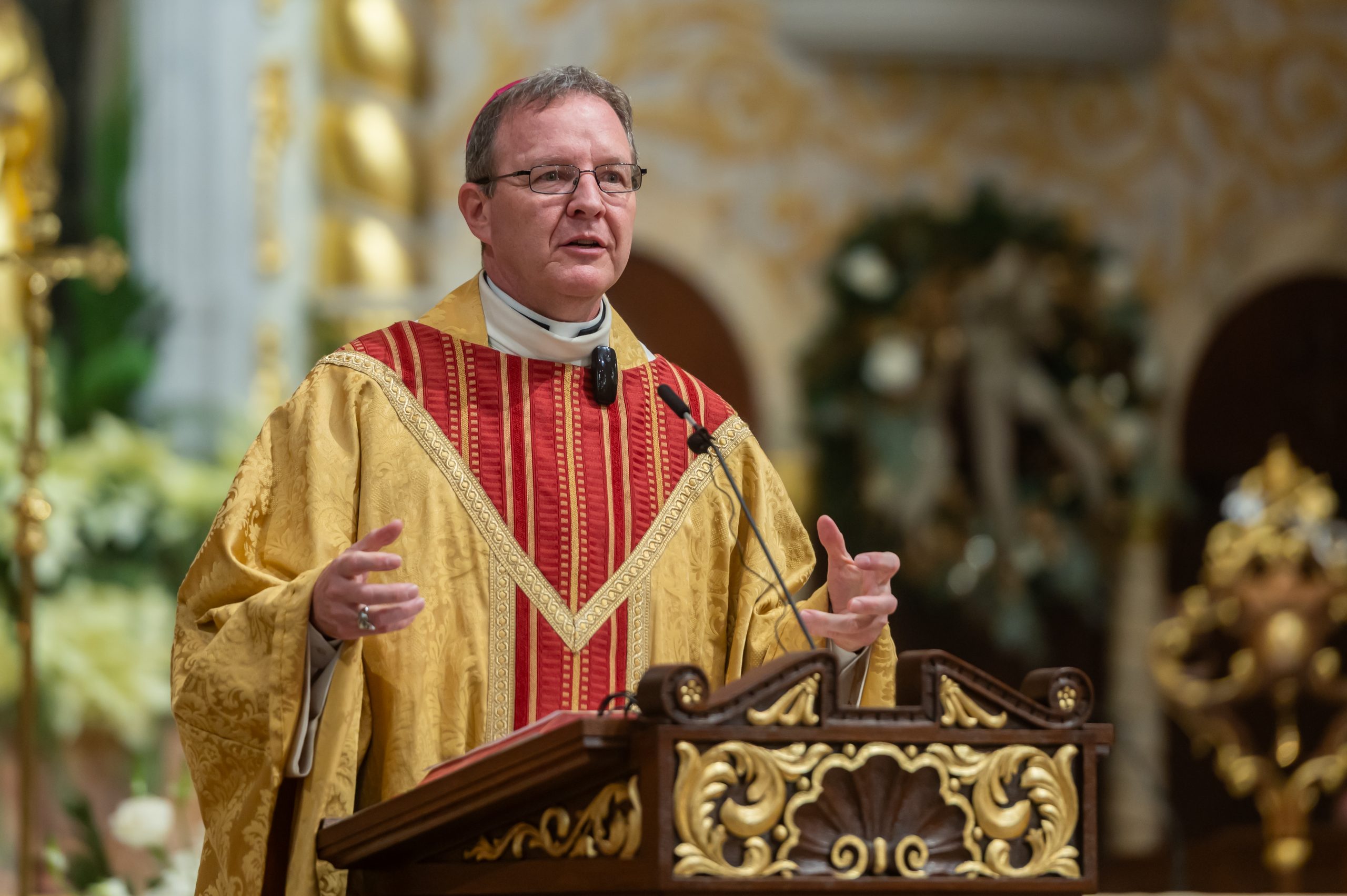John Henry Newman, one of the leading Roman Catholic and Anglican theologians of the 19th century, will be canonized Sunday, October 13. His search for truth and writings on his beliefs were instrumental in changing the definition of religion in his time and beyond. Cardinal Newman will be the first English citizen to become a saint in the Roman Catholic Church since the 17th century.
In his 40 books and more than 20,000 letters, Cardinal Newman expresses a strong belief in the importance of a personal relationship with God. His writings inspired hundreds of Anglican clergymen to join the Roman Catholic Church in the 19th century and influenced the work of the Second Vatican Council in the 20th. In his memory, Newman Centers were first established to serve Catholic students at non-Catholic universities in 1888 and continue serving students around the world today, including on more than 2,000 U.S. campuses.
Born in London, England on Feb. 21, 1801, Cardinal Newman experienced “an inward conversion” at age 15 that he described “as more certain than that he had hands or feet.” Following graduation from Trinity College of Oxford, he was ordained an Anglican priest in 1821. As the vicar of the university church, St. Mary the Virgin, for 17 years, Cardinal Newman became a popular pastor, poet and preacher and a highly regarded theologian.

Blessed John Henry Newman is seen in a portrait at a church in Rome. Although 32 annotated volumes of the cardinal’s letters and diaries have been published over the last two decades, newly released material includes letters and correspondence to the future saint. (CNS photo from Crosiers)
Cardinal Newman led the Oxford Movement in an effort to reconnect the Church of England with its origins by studying the writings of the first Church Fathers. His research convinced him that the Roman Church was the original Church established by Christ. His preaching and writing of the Tracts for the Times promoting Catholic teachings and rituals created intense hostility from some Anglican clergy. In 1841 the bishop of Oxford suspended him from publishing the Tracts. CardinalNewman resigned as editor of the British Critic.
Cardinal Newman left Oxford in 1842 and was formally received into the Catholic Church on October 9, 1845. Ordained a priest in October of 1846 in Rome, he returned to England where his lectures against anti-Catholic rhetoric led to charges of libel. When found guilty, his many supporters raised funds that exceeded the cost of the fine and his legal expenses.
“I sought to hear the voice of God and climbed the topmost steeple, but God declared: “Go down again – I dwell among the people.”
Cardinal John Henry Newman
In 1854, Cardinal Newman became rector of the new Catholic university in Dublin where he completed some of his most effective writing. Named a cardinal in 1879, after refusing to be named a bishop, he chose “Cor ad cor loquitur” – “Heart speaks to heart” as his motto. Cardinal Newman died of pneumonia in Birmingham, England on August 11, 1890.
Four women will also be canonized on Oct. 13, including Sister Mariam Thresia of India, who founded the Congregation of the Sisters of the Holy Family, Sister Giuseppina Vannini of Italy, who is the founder of the Daughters of Saint Camillus, Sister Dulce Lopes Pontes of the Congregation of the Missionary Sisters of the Immaculate Conception of the Mother of God, otherwise known as the Good Angel of Brazil, and Marguerite Bays of Switzerland, a member of the Third Order of Saint Francis of Assisi.







